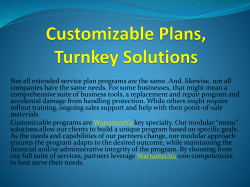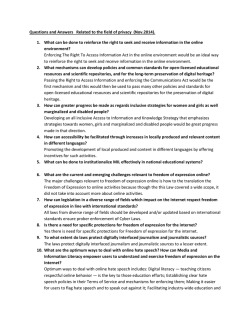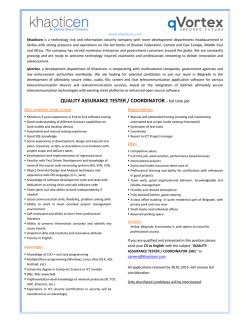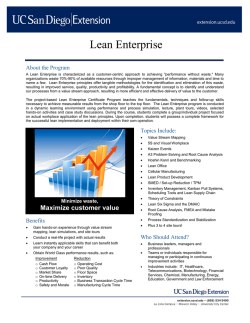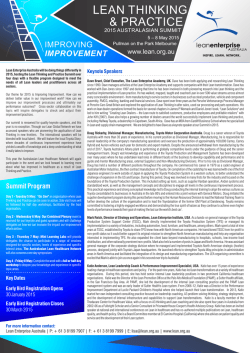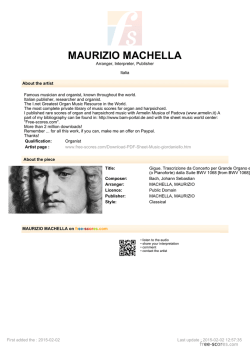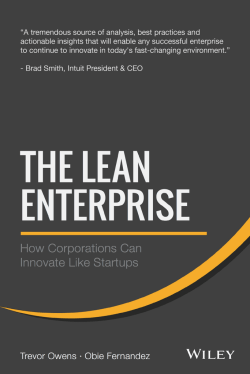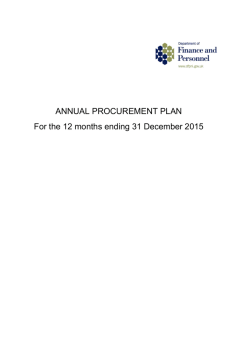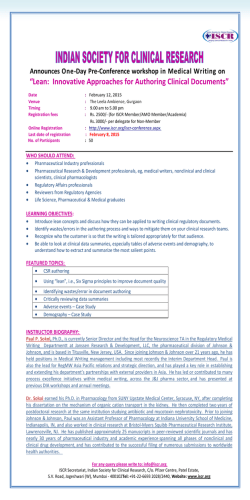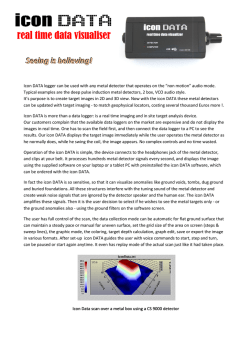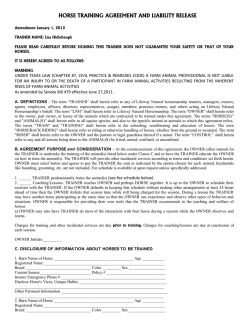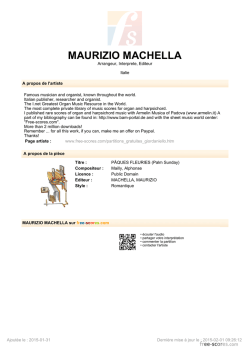
Virtual Mobility Initiative Smart Tools for Production Management
Virtual Mobility Initiative Smart Tools for Production Management The initiative targets Production Managers and Engineers bearing control responsibility in manufacturing industries, as well as their co-workers. The course will be managed and stimulated by an international pool of experts in production management, innovative production process and ICT tools, with a specific focus on TQM. Lean management, Modular Product Architecture, MRP. Participants will have to opportunity to cooperate and exchange experiences with colleagues from Austria, Italy, Spain and Turkey, through an online platform. The course will start the 9th of February 2015 until the 26th of June 2015, the working language in English. Modules: • Professional technical English: 10 hours in 2 weeks • Quality and production management: cost reduction: 14 hours in 4 weeks • Modular Product Architecture: 8 hours in 4 weeks Visual planning – optional: 7 hours in 3 weeks • Software in industry: Web 2.0 and SW: 10 hours in 3 weeks • Practical example for production scheduling: 15 hours in 2 weeks PROGRAMME 1. Professional technical English • Trainers: Julia Melcher, Anastasia Sfiri Module general objectives • Basic Speaking Skills in English for workers in the technical sector and metal sector • Workers should be able to introduce themselves, talk about their work and daily routine, and have small-talk with their English-speaking colleagues at work. They should also be able to differentiate between a formal and an informal context (register). • Chapter 1: Introducing yourself - formal and informal context; introducing others; talking about work life, family and hobbies. • Chapter 2: Talking about work – talking about daily routine, tasks and responsibilities at work in more detail; naming and describing objects and activities. Start End Duration Monday 09.02.2015 Friday 27.02.2015 3 weeks, 10 hours 2. Quality and production management: cost reduction • Trainer: Gottlieb Galuska Module general objectives ... is to learn about processes, methods and the application of tools to be able to continuously analyze and improve the work (sphere of influence) and make product/processes more efficient and lean as well as considering cost relevant factors. In addition to that the students should be able to learn how to utilize the material / processes / organization in a cost effective way, how to efficiently utilize working time and how to identify potential savings. • Definition of quality success factors in a company and the relationship among them. • Description of major elements of Total Quality Management, the alignment with the quality objective and causal relationships. • Description and application of state of the art quality concept. “Continuous Improvement Process” and “Lean Concept”. • Description and application of a selected set of tools, supporting the continuous improvement process and lean management concepts. • Definition and application of 2 types of cost models, classification of cost factors and linkage to the working areas in day to day business. Competences to be achieved when enrolling this course: The major competences which have to be achieved are the abilities to apply the concepts of „Continuous Improvement Process (CIP/KAIZEN)” and „Lean Management”. Therefore a sound knowledge of success factors of quality, Total Quality Management and tools which support those concepts is of fundamental importance. Cost drivers are going to be detected and defined which are caused by wastage and inefficiencies. Start End Duration Monday 02.03.2015 (CW 10) Friday 04.04. 2015 (CW 14) 5 weeks, 14 hours 3. Modular product architecture • Trainers: Maurizio Scabbia, Uberto Cortese Module general objectives This module will provide you with an insight of modular product architecture. By participating we will learn how to: • Identify modular product architecture applied to company's production process • Define the transformation process of a products family from integrated to modular architecture • Identify actions to enhance the role of production department in modules' definition 1. Identify different product architectures 2. Identify business benefits of the introduction of modular architecture 3. Define possible applications within company's production process to introduce modular architecture into an existing product family Product architectures, business benefits of modular product architecture, application to company production process Start End Duration 07.04.2015 30.04.15 4 weeks, 8 hours 3.1. Visual planning (optional) • Trainer: Maurizio Scabbia Module general objectives This module will provide you with an insight of visual planning. By participating we will learn how to: • Definition of quality success factors in a company and the relationship among them. • Recognize the principles of project management within the production management's activities − Identify the importance of visual planning in production • Identify different levels in visual planning (from macro to micro) • Apply visual planning techniques to the projects 1. Formalise projects through visual planning 2. Recognise Classical vs. Lean (visual) approach 3. Recognise a visual master plan 4. Recognise a visual department plan 5. Describe a problem (and its possible solutions) through visual planning Start End Duration Monday 07.04.2015 Friday 24.04.15 3 weeks, 7 hours 4. ICT, WEB 2.0 & SW for the Metal Sector • Trainer: Sismen Navin Module general objectives This Module will enlighten you in some of the aspects related to Web 2.0 technologies and their extensions needed for your working life in the sector, together with giving you some information about efficient use of software in metal sector. Efficient use of software is also linked to Web 2.0 infrastructure, which allows you to locate the appropriate one by facilitating your search with others’ input. • Improve ICT, WEB 2.0 understanding, get familiar with WEB 2.0, for improved utilization of WEB 2.0 tools for knowledge exchange in metal sector, • Awareness of SW utilization and SW selection tips in the storage and maintenance control & management, for increasing workplace activities‘ efficiency. Specific objectives; to be able to: • Use WEB 2.0 tools, • Understand storage and maintenance control & management SW Competences to be achieved: Be able to use WEB 2.0 tools for knowledge exchange; search, locate, utilize the most up to date software available for increasing the efficiency in industry using ICT. Topics of the course • ICT, WEB 2.0 & SW for metal sector • ICT & WEB 2.0 (9 hours of learning) • SW (1 hours of learning) Start End Online Assistance 4 weeks Monday, 30th March 2015 Friday, 17th April 2015 Fridays 16:00 - 17:00 CET 3 Weeks, 10 Hours 5. Practice of provisioning for production scheduling • Trainer: Inaki Narbaiza Module general objectives This module will help you to plan the material goods and the capacity of manufacturing resources in the production by machining: • identifying basic concepts of production management • developing MRP I and MRP II systematics: Material Requirements and Manufacturing Resources Planning. Learning outcomes: 1. Describe and explain the basic concepts of production management. 2. Explain and describe the logic operation of an MRP I system and develop manufacturing programs analyzing the material requirements. 3. Explain and describe the logic operation of an MRP II system and develop manufacturing programs analyzing the capacity needs of manufacturing resources, by establishing the differences between each of the systematics. Start 01.06.2015 End 26.06.2015 Duration 4 weeks, 12 hours Moodle platform http://www.teacamp.eu/moodle2/course/index.php?categoryid=7 Contact point Italy Confindustria Veneto SIAV spa Chiara Salatin Tel. +39 041251 7511 Email: [email protected] The initiative has been made available by the Leonardo MEVEL partnership: www.mevel-eu.net Il presente progetto è stato finanziato con il sostegno della Commissione Europea. Questa pubblicazione rispecchia il punto di vista dell'autore e, pertanto, la Commissione non è responsabile di alcun uso che possa essere fatto di informazioni qui contenute.
© Copyright 2026
